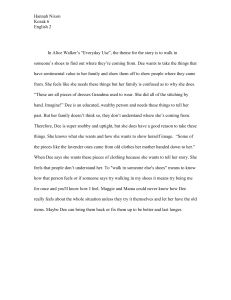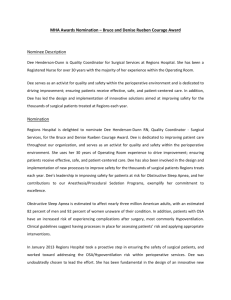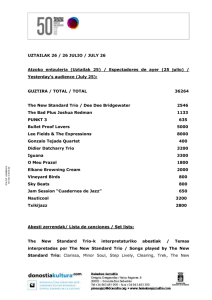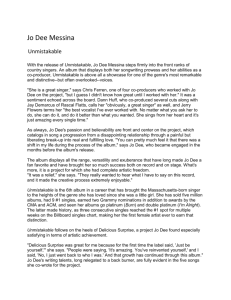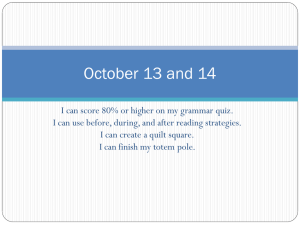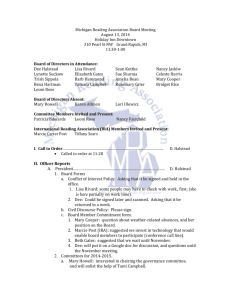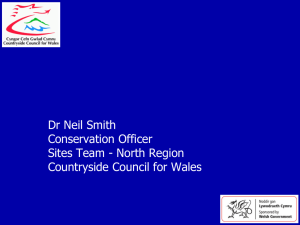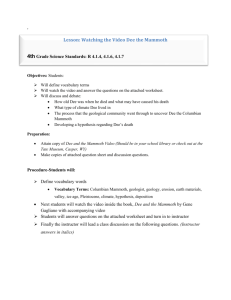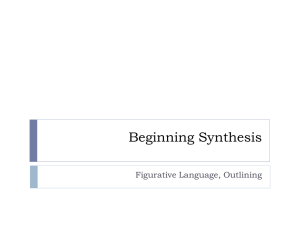The River Dee
advertisement
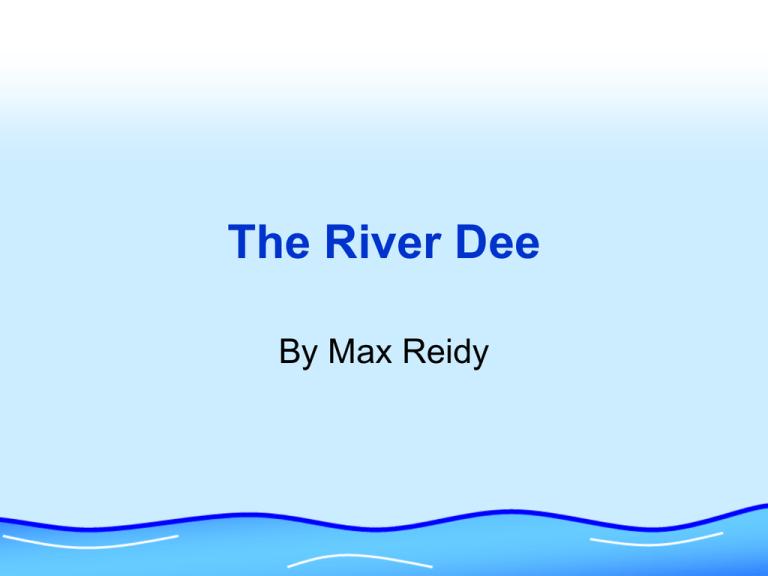
The River Dee By Max Reidy The Source The Source is the beginning of the river and usually starts up in the hills. It is where the river starts its journey to the sea. The source of the River Dee is on the slopes of Ddualt Mountain, south of Bala Lake. Waterfalls A waterfall happens where a river or stream flows over a vertical drop. The only waterfalls of any size on the Dee or its tributaries are on the River Ceiriog, not far from its source. The Horseshoe Falls, an artificial waterfall on the Dee near Llangollen. Rapids River rapids feature fastflowing water in a steeper section of the river. 'Whitewater', filled with air bubbles, is often seen swirling around rocks in the shallow water within rapids. These rapids are on the River Dee near Llangollen in Wales. The best known parts of the rapids are The Serpent's Tail and the Town Falls. Meanders A Meander is a little bend in the river, and as more water gets into it, it will bend more and more, and start to wash away some of the land. These are meanders on the River Dee south of Chester. Flood Plain A flood plain is the area of land next to a river that can flood after heavy rain. These photos show flooding on the River Dee at Farndon, south of Chester Tributaries Tributaries are when a small river flows in to a larger one. This tributary is the River Alyn, which rises at the southern end of the Clwydian hills, flows north, then turns back south east and meets the Dee near Holt. Caves The River Alyn, a major tributary of the Dee, flows over an area of limestone rock near Mold. Limestone can be dissolved by rainwater, which creates caves underground! The re are three cave systems near and beneath the River Alyn, close to Loggerheads Country Park. Towns on the River Dee • The city of Chester was founded by the Romans as a fortress in the 70s AD. • It was named Deva Victrix, after the goddess of the River Dee. The Mouth The mouth of a river is where it meets a large body of water (e.g. the sea, a lake). The mouth of the River Dee is at the southern end of the Dee Estuary. The River Dee was once much wider to the west of Chester, and quite large ships were able to sail right up to the city walls in Roman times. Over the centuries, however, the Dee Estuary filled up with mud and silt, and larger ships could no longer reach the city. The newer port of Liverpool soon became much more important than Chester, because much larger ships could sail up the River Mersey. Estuary An estuary is a partly enclosed area of water at the coast, with one or more rivers flowing into The River Dee flows into the estuary and out to sea into Liverpool Bay. The estuary contains large areas of sand and salt marsh. It is very important for wildlife, especially wading birds and wildfowl - it is one of the top ten estuaries in Europe for birds, and the most important wetland site in Wales. Much of it is a protected nature reserve, and many birdwatchers visit the area.
